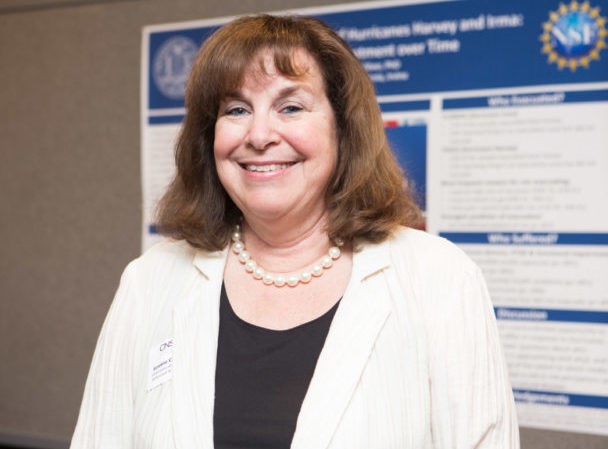December 16, 2021
As 2021 ends, FABBS celebrates the leadership of Dr. Roxane Cohen Silver (University of California, Irvine) as President of FABBS for the past two years. We have invited Dr. Silver to reflect on her time in the role.

What was the most rewarding accomplishment while leading FABBS?
Serving as President of FABBS for the past two years has been one of the most valuable service activities in which I have been engaged over the course of my career. Although I have been actively involved in policy-relevant discussions of the role of the social and behavioral sciences since the September 11th terrorist attacks, I have learned so much by working with committed scholars, educators, and science advocates through my involvement in FABBS.
As a researcher whose area of expertise is on stress and coping with personal and collective traumas, I was gratified that the work that I had done over the course of my career could help inform FABBS’ response to the pandemic and other stressors that unfolded. I was pleased that I could respond to media and other requests, while wearing the hat of the FABBS presidency, to assist in elevating the contributions of the mind, brain, and behavioral sciences and bringing our important voices to the table.
During your service as president, what were some of the biggest challenges facing the behavioral and brain sciences?
I began my term as FABBS President in January 2020 with enormous enthusiasm for the role of behavioral and brain sciences in addressing the important social issues of our times. But as I began, I could never have imagined how we – as a science and as a country – had to quickly pivot a few short months later to respond to the COVID-19 pandemic, the quarantines, challenges to our educational mission, the belated attention to systemic racism and social unrest, and the onslaught of climate-related disasters.
As these challenges cascaded, one to another, the behavioral and brain sciences had much to contribute – and we did. Our scholars rapidly began to write commentaries and opinion pieces, consult with our universities and the public at large, and conduct further research to tackle important topics such as the dissemination of misinformation, vaccine hesitancy, climate change, political polarization, and mental health. Our scientists had a lot to say about these topics in 2020 and 2021– and we still do.
Was there anything that surprised you while serving in this role?
I was both surprised and impressed by the important role that our sciences could play in the national (and international) discussions of the pandemic and associated stressors of the past couple years. The enthusiasm and hope that we had for the rapid development of incredibly effective vaccines – which had the potential to eliminate the threat of COVID-19 in a timely manner – was met with the realization that people’s emotions, cognitions, and behaviors would also need to be considered when the vaccine rollout did not go as planned. I was also surprised at how challenging it has been to get our scientists onto the important decision-making bodies as the pandemic has waxed and waned. We have a lot to say, and we need to continue to push so that others hear our voices.
What is your advice for researchers interested in connecting their research to policy and practice?
I encourage our young scholars to get involved in society leadership, if they are able. I also encourage everyone to take advantage of our public scholarship toolkit, our webinars and public lectures, our journal, and our advocacy activities. Learning how we can actually take our sciences beyond the academic journals and classroom to important local and federal policy-making is an important exercise. It is both personally and professionally rewarding, and crucial for our country as well.